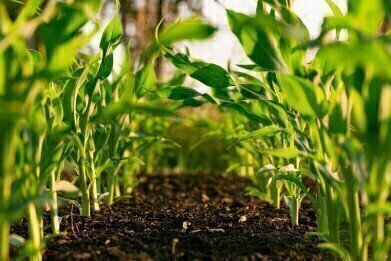Environmental Laboratory
5 Ways to Minimise Pollution From Agriculture
Dec 04 2022
Incurring a range of different types of contamination through various causes and resulting in even more manifold effects, agriculture is one of the most polluting sectors on the planet. Although modern farming techniques have been instrumental in producing enough food to sustain the world’s growing population, they have also polluted our airways, contaminated the soil and compromised water quality, incurring harmful effects on humans, animals, plants and the planet in general.
However, it doesn’t have to be this way. Although it will take a seismic shift in how the agricultural industry operates at every stage of the supply chain, from farm to fork, it is possible to curb the contamination associated with the sector. Here are a number of the most important ways that agriculture can clean up its act and minimise the pollution it produces.
Organic farming
The use of chemical-based fertilisers and pesticides has been hugely important to maximising crop yields and fighting off competitors for our food. However, they have also brought with them a number of other undesirable side-effects. A return to organic farming is better for the environment, but produces significantly smaller yields and as such, is not a feasible tactic alone.
Precision farming
Instead, organic farming could be combined with precision farming, which utilises data on moisture, temperature, humidity and a range of other parameters to guarantee that crops receive the exact amount of H2O and chemical product that they require – and not a drop more. This not only optimises the use of resources, but also protects the land from oversaturation with nutrients and toxins.
Better land use
At present, agriculture is responsible for the destruction of far too many natural habitats and the degradation of too many land resources. By favouring crop rotation over monoculture farming, eschewing deforestation, positioning reeds, shrubs and other border plants to prevent agricultural run-off and planting cover crops to protect the ground after the season is complete, farmers can better care for the Earth that sustains them.
More plants, less animals
Ruminant animals like cows and sheep consume vast amounts of crops and water, as well as expelling substantial volumes of greenhouse gases into the air. By cultivating the land more and rearing livestock less, we can reduce the burden on the planet in both ways. Of course, this will take a concerted effort from consumers too, since supply only ever responds to demand, but a more plant-focused diet would be beneficial for all.
Waste management
The waste generated by farms and other husbandry holdings is a significant contributor to agricultural pollution. If farmers can implement plans to properly manage the waste they produce, this will cut down significantly on their environmental footprint. This means appropriate storage, processing and disposal of manure and other waste products, as well as recycling and reusing wherever possible.
Digital Edition
Asian Environmental Technology 27.2 - April/May 2023
May 2023
In This Edition Business News - Celebrating The Life Of A Gas Measurement Industry Icon - A New Home For Gas Sensor Specialists - Envea Completes The Acquisition Of Hycontrol Ltd Environ...
View all digital editions
Events
Jul 02 2023 Albena, Bulgaria
Jul 04 2023 Cardiff, UK
Jul 05 2023 Johannesburg, South Africa
Jul 11 2023 Shanghai, China
Jul 11 2023 Lagos, Nigeria



















